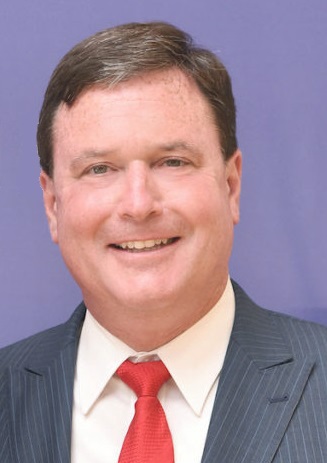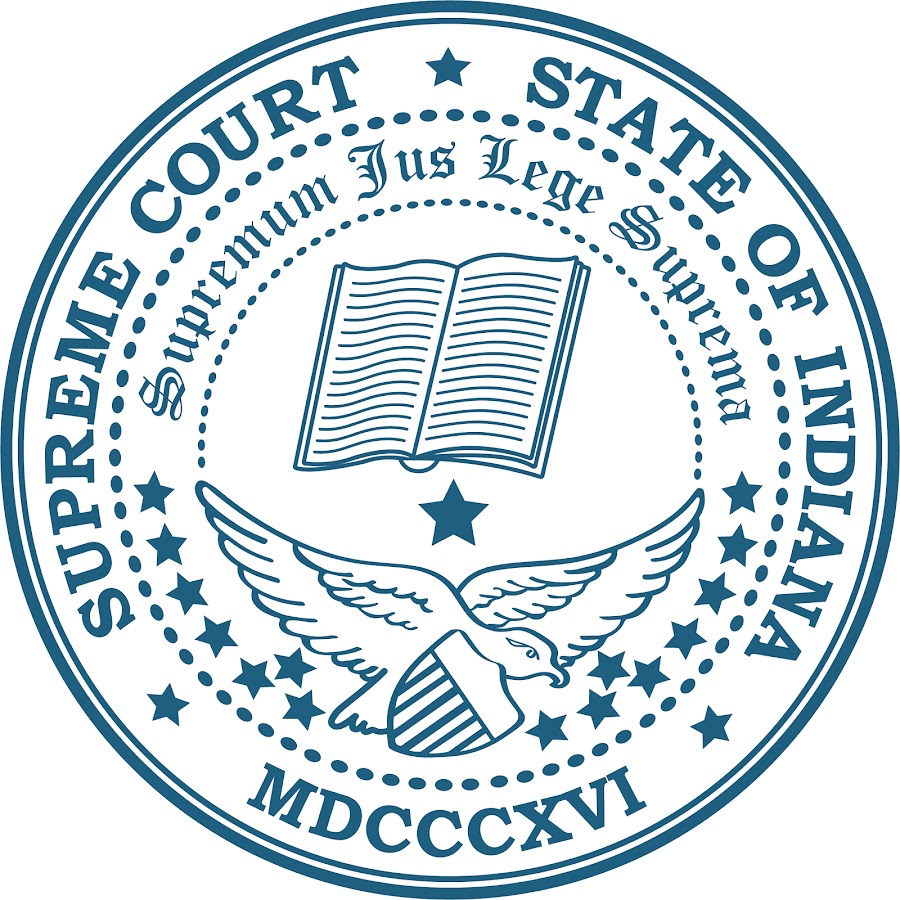
Indiana Attorney General Todd Rokita announced today that a coalition of 50 attorneys general has reached a settlement with Marriott International Inc., the result of a multi-year investigation into a massive data breach which targeted one of its guest reservation databases.
Under the settlement with the attorneys general, Marriott has agreed to strengthen its data security practices using a dynamic risk-based approach, to provide certain consumer protections, and to make a $52 million payment to states.
Indiana will receive over $900,000 from the settlement.
“Protecting Hoosiers’ personal data, whether they are checking into a hotel or just checking out potential travel plans, is an important priority of our office,” Attorney General Rokita said. “That’swhy we hold corporations accountable for responsibly handling consumers’ information. This settlement shows once again our resolve to make sure corporations are vigilant in following security protocols.”
The Federal Trade Commission, which has coordinated closely with the states throughout this investigation, has reached a parallel settlement with Marriott.
Marriott acquired Starwood in 2016 and took control of the Starwood computer network in 2016. However, from July 2014 until September 2018, intruders in the system went undetected. This led to the breach of 131.5 million guest records pertaining to customers in the United States. The impacted records included contact information, gender, dates of birth, legacy Starwood Preferred Guest information, reservation information, and hotel stay preferences, as well as a limited number of unencrypted passport numbers and unexpired payment card information.
Shortly after the breach of the Starwood database was announced, a coalition of 50 attorneys general launched a multi-state investigation into the breach. Today’s settlement resolves allegations by the attorneys general that Marriott violated state consumer protection laws, personal information protection laws, and, where applicable, breach notification laws by failing to implementreasonable data security and remediate data security deficiencies, particularly when attempting to use and integrate Starwood into its systems.
Under the terms of the settlement, Marriott has agreed to strengthen and continually improve its cybersecurity practices. Some of the specific measures include:
- Implementation of a comprehensive Information Security Program. This includes new overarching security program mandates, such as incorporating zero-trust principles, regular security reporting to the highest levels within the company, including the Chief Executive Officer, and enhanced employee training on data handling and security.
- Data minimization and disposal requirements, which will lead to less consumer data being collected and retained.
- Specific security requirements with respect to consumer data, including component hardening, conducting an asset inventory, encryption, segmentation to limit an intruder’s ability to move across a system, patch management to ensure that critical security patches are applied in a timely manner, intrusion detection, user access controls, and logging and monitoring to keep track of movement of files and users within the network.
- Increased vendor and franchisee oversight, with a special emphasis on risk assessments for “Critical IT Vendors,” and clearly outlined contracts with cloud providers.
- In the future, if Marriott acquires another entity, it must timely further assess the acquired entity’s information security program and develop plans to address identified gaps or deficiencies in security as part of the integration into Marriott’s network.
- An independent third-party assessment of Marriott’s information security program every two years for a period of 20 years for additional security oversight.
As part of the settlement, Marriott will give consumers specific protections, including a data deletion option, even if consumers do not currently have that right under state law. Marriott must offer multi-factor authentication to consumers for their loyalty rewards accounts, such as Marriott Bonvoy, as well as reviews of those accounts if there is suspicious activity.

Owner ordered to pay nearly $350K in restitution, banned from industry
Indiana Attorney General Todd Rokita has taken down another group of businesses engaged is shady practices that violate the standards that Hoosier consumers have a right to expect.
This time, it’s a home-improvement contractor who allegedly tried running off with hundreds of thousands of dollars collected from hard-working homeowners without providing the anticipated services.
“Here in Indiana, we won’t tolerate businesses that collect payment and then fail to do the work they promised,” Attorney General Rokita said. “We will always work to hold accountable businesses that violate the trust placed in them by hard-working Hoosiers.”
Attorney General Rokita and his Consumer Protection team won a combination judgment of both civil penalties and restitution totaling $341,006.81 on behalf of numerous Hoosiers duped by Quest Concrete LLC and Cobraro & Company LLC — doing business as Quest Exteriors. These are an intertwining network of “home improvement” contractors that allegedly improved nothing but the businesses’ own financial situations.
Attorney General Rokita also secured a permanent injunction that bans from the construction industry Michael Gossett, the head of both LLCs, and all primary affiliates — including agents, representatives, employees and successors involved with ripping off Hoosier consumers.
Rokita commends Deputy Attorney General Tamara Weaver for her hard work in removing Quest Concrete and their affiliates from the Indiana marketplace and for helping to win the nearly $350,000 restitution order from the court.

The Indiana Supreme Court annual report is available online. Chief Justice Loretta Rush will speak to media about the report on Tuesday, October 15 at 1:00 p.m. (Eastern) in the Supreme Court conference room (State House Room 319). Press interested in attending should RSVP to
The 60+ page Supreme Court annual report provides information about the work of the court and its affiliated agencies during the fiscal year (July 1, 2023, to June 30, 2024). In addition to providing statistics on the cases considered by the court, the report also details the administrative work of the judicial branch.
Some of the information included in the data, milestones, and important projects, include:
- The five justices reviewed more than 735 cases, heard 44 oral arguments, and handed down 47 majority opinions
- 60% of all court opinions were unanimous
- A 23-member Commission on Indiana's Legal Future was established to investigate solutions for the state's attorney shortage
- Over 60% of requests for cameras in trial courts were accepted by local judges
- Users accessed mycase.in.gov a total of 54 million times
- Over 23,000 continuing legal education courses were accredited by the Office of Admissions and Continuing Education
- Courts made 8,100 calls to Language Line for telephone interpreter services
- Nearly 1,200 hours of training was offered to judicial officers and other justice system stakeholders
Past annual reports can be found at courts.in.gov/supreme/annual-reports/.

Indiana Attorney General Todd Rokita is co-leading a 14-state lawsuit against the Federal Communications Commission's (FCC’s) new rule that could limit phone calls for inmates and prevent local police from performing one of their most basic functions — investigating and preventing crimes by surveilling inmate calls.
By capping the cost for inmates far below any reasonable level, the FCC will impose new costs on taxpayers and deprive state and local authorities of many safety benefits that come from allowing inmates access to audio and video calls. The FCC’s new rule would likely force some jails to eliminate such services altogether — directly undermining the goal of expanding inmate access to calls that the FCC claims it is pursuing.
“Federal bureaucrats at the FCC are trying to dictate to our local sheriffs and state prison administrators how to manage their prison facilities,” Attorney General Rokita said. “Their unlawful tampering runs a very real risk of making our jails and therefore our communities less safe. That’s why we’re stepping forward to protect the interests of sheriffs, correctional officers, the Indiana Department of Correction and all Hoosiers to challenge this rule and defend common sense.”
Attorney General Rokita’s multistate challenge seeks the reversal of unlawful regulations that, among other things, impermissibly intrude into how state and local prisons and jails provide communication services to inmates. The feds’ new inmate phone call rules threaten to dismantle the monitoring of inmate communications — a valuable investigative tool available to local law enforcement.
Granting inmates’ access to communication services — which include both calls and other online services accessible by tablets, such as legal resources and religious materials — helps reduce violence and other disruptive behavior in inmate populations. By monitoring inmate calls, facilities are also able to identify suicide risks and criminal activity and gather information that can help solve crimes. Providing communication services for inmates has become a vital tool that state and local authorities rely on to keep inmates and the public safe.
By issuing this rule, the FCC has far exceeded its statutory authority to regulate inmate communication services and ignored important safety and economic considerations that should have guided the agency’s decision making.
Attorney General Rokita is co-leading this lawsuit with Arkansas Attorney General Tim Griffin. The 14 states will detail their arguments upon filing their opening brief later this year.

October is Breast Cancer Awareness Month
Breast cancer is the second leading cause of cancer death among Hoosier women, which is why we recognize the month of October as Breast Cancer Awareness Month.
Early detection of breast cancer is critical in improving a patient's chance of survival, which is why I supported a new law this year that improves breast cancer screenings and communication with patients.
Here in Indiana, a specialty license plate has also been established, with proceeds from this plate benefitting the Indiana Breast Cancer Awareness Trust.
While women are most often diagnosed with breast cancer, men can be diagnosed with the disease as well.
To learn more about breast cancer-related programs in Indiana, click here.
SalemLeader.com
Leader Publishing Company of Salem, Inc.
P.O. Box 506
117-119 East Walnut Street
Salem, Indiana. 47167
Phone: 812-883-3281 | Fax: 812-883-4446
Business Hours:
Mondays through Fridays, 9:00am - 5:00pm
News:
news@salemleader.com
Office:
office@salemleader.com
Publisher:
publisher@salemleader.com
Business
- More Business News
- Go To Guide
- Business Directory
- Auctions
Education
- More Education News
Opinion
- Editorials
- Letters to the Editor
- Columns
- Unsung Heroes
- Days Gone By
- In the Garden
- Guest Columns
- Reader's Poll
- Salem Leader Forum
- Questions and Answers
Church
- Bible Aerobics
- Church News
- Church Directory

